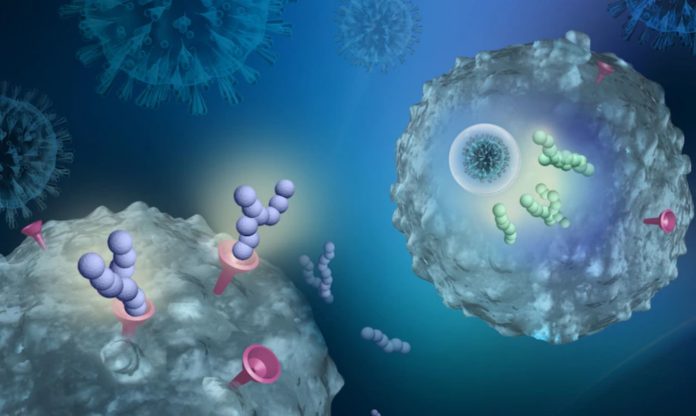The drugs created by the researchers do not affect the SARS-CoV-2 itself, which causes the disease, but the cells that it damages.
Australian scientists have found a way to replace the COVID-19 vaccine with drugs. This was announced on Tuesday, May 24, at the Medical Research Institute Berghofer in Brisbane.
Medicines for the prevention and treatment of various forms of coronavirus are already being tested in French laboratories on animals.
The first experiments proved their safety and effectiveness.
Scientists argue that the new drugs do not require special storage conditions.
- Brief Anger Hampers Blood Vessel Function Leading to Increased Risk of Heart Disease and Stroke – New Study
- New Blood Test Pinpoints Future Stroke Risk – Study Identifies Inflammatory Molecules as Key Biomarker
- Enceladus: A Potential Haven for Extraterrestrial Life in its Hidden Ocean Depths
- New Experiment: Dark Matter Is Not As ‘DARK’ As All We Think
- Scientists in Fear of This New Predator From Red Sea Eating Native Species in Mediterranean
The drugs created do not affect SARS-CoV-2 itself, but the cells that it damages.
Senior Researcher at QIMR Berghofer, Professor Sudha Rao, said the first drug is designed to prevent infection and would be administered pre-exposure and aid the efficacy of vaccines, while the second drug would prevent the spread of the virus within cells.
“The first treatment works by blocking the virus from entering as it effectively acts like a padlock on the human cells,” she said.
“And the second drug, if the virus does enter, it prevents the virus from replicating.
“They are really what we call early intervention drugs, so they really are there to reduce the severity of the disease.”
The development of the drugs came after researchers uncovered a previously unknown way that SARS-CoV-2 entered cells and cause COVID-19.
“We know that the ACE2 receptor is the critical entry point as to how the virus enters,” Professor Rao said.
“What we’ve really uncovered is the way the virus is able to exploit the human cells and allow the ACE2 door to become fully open, and therefore the virus can rapidly enter.
“Once it enters it can use the cellular machinery in the human cells to replicate.
“And knowing that … one drug really acts like a cloak around the human cell and therefore prevents the virus from entering through the ACE2 receptor.
“Whereas the second drug … if the virus does enter, the drug is specifically there to prevent the virus from replicating.”
Professor Rao said the results of the laboratory testing were “looking very promising”.
“All our testing has been done in human cells and in gold-standard models of the SARS-CoV-2 virus, the COVID-19 models and in both of those what we’ve been able to show is that [these] drugs are very safe.
“We’re waiting on final results, because we are wanting to go very soon into human testing.
“We’re really hoping to start clinical trials in a few months,” she said.
She said they hoped the drugs would be effective against all variants of the virus.
“The way that these drugs have been designed, they will be able to block all variants, all these betacoronaviruses,” Professor Rao said.
“We have developed the drug against the region which is conserved amongst all the variants.
“So, it will be as effective against the variants as well.”
Although Queensland scientists are leading the research, it is an international collaboration.
“Even though we’re leading this, we’re part of an international consortium, and we are working with leaders in infectious diseases in Europe, where the COVID-19 disease is very rife … so there’s lots of patients,” Professor Rao said.
- Brief Anger Hampers Blood Vessel Function Leading to Increased Risk of Heart Disease and Stroke – New Study
- New Blood Test Pinpoints Future Stroke Risk – Study Identifies Inflammatory Molecules as Key Biomarker
- Enceladus: A Potential Haven for Extraterrestrial Life in its Hidden Ocean Depths
- New Experiment: Dark Matter Is Not As ‘DARK’ As All We Think
- Scientists in Fear of This New Predator From Red Sea Eating Native Species in Mediterranean
“So it means that not only can we start the clinical trial, you want to be able to complete the clinical trial rapidly, so you can get it to as many people as possible.”
The research results are published in the scientific journal Nature Cell Discovery.
Image Credit: QIMR Berghofer
